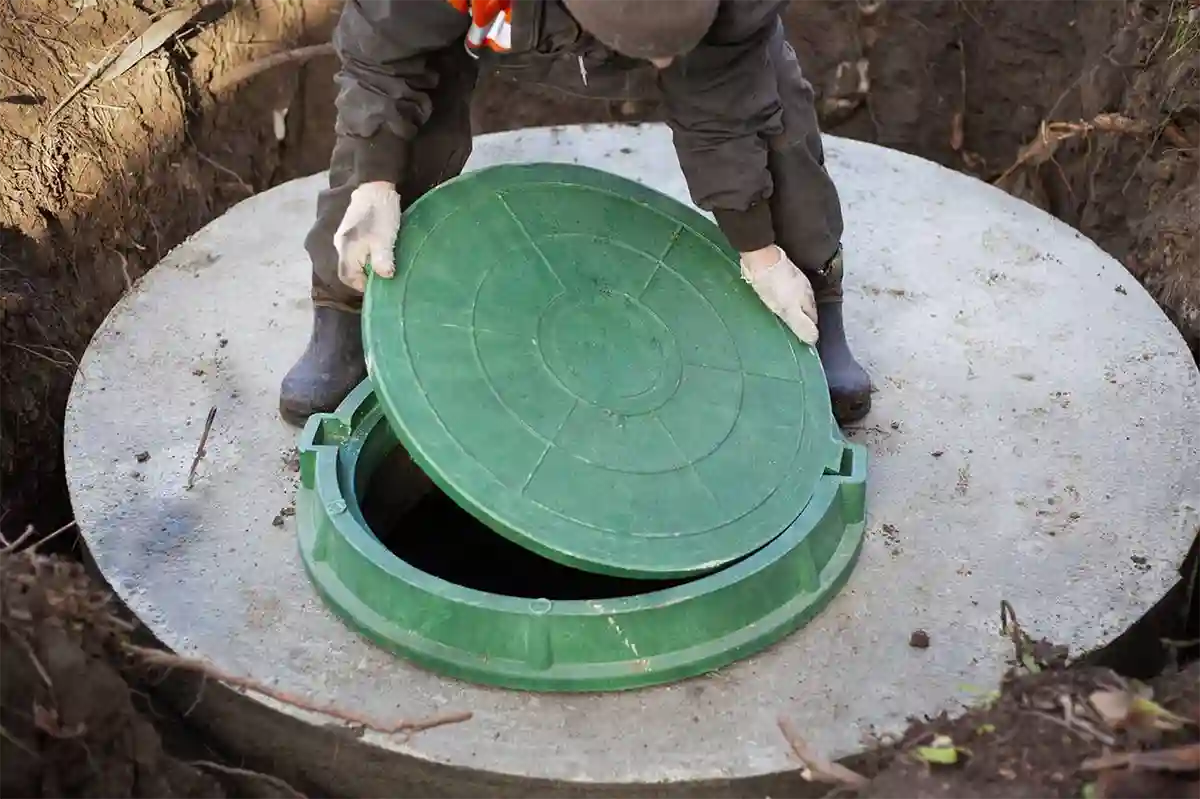Septic systems are essential for homes not connected to municipal sewer lines, but they require regular monitoring to function efficiently. A septic tank alarm plays a vital role in preventing costly repairs, backups, and environmental hazards. Understanding how it works, why it’s important, and when to take action can save homeowners from unexpected plumbing emergencies.
In this guide, we’ll explore the importance of a septic tank alarm, how it functions, common issues, and essential maintenance tips to keep your system in top shape. We’ll also cover the role of professional installation and repair services to ensure your septic tank alarm is always in optimal condition.
What Is a Septic Tank Alarm?
A septic tank alarm is a device that alerts homeowners when their septic system reaches critical levels. It helps prevent overflow, backups, and potential environmental contamination by notifying users of high liquid levels or other malfunctions. These alarms are typically installed near the septic tank or inside the home for easy monitoring.
Most alarms work using a float switch or a pressure sensor that detects rising liquid levels in the tank or pump chamber. When the level exceeds the safe threshold, the alarm sounds, indicating that action is needed.
Why Is a Septic Tank Alarm Important?
A septic tank alarm is more than just an alert system—it acts as a safeguard against severe plumbing issues. Here’s why every home with a septic system should have one:
1. Prevents Costly Repairs
Ignoring a septic tank issue can lead to system failure, which can cost thousands of dollars to repair or replace. The alarm warns you before problems escalate, allowing for timely repair or maintenance.
2. Avoids Health Hazards
When a septic system overflows, raw sewage can seep into your yard or home, causing serious health risks due to bacterial contamination. A timely alert can prevent this situation, saving you from health emergencies and the costs of cleaning up hazardous waste.
3. Protects the Environment
Septic leaks can contaminate groundwater and nearby water sources, affecting both human health and local ecosystems. An alarm helps prevent leaks by signaling early warnings.
4. Reduces Emergency Plumbing Situations
Plumbing emergencies like sewage backups often happen unexpectedly. A septic alarm gives homeowners a chance to schedule maintenance or repair before disaster strikes.
How Does a Septic Tank Alarm Work?
A septic tank alarm system consists of three primary components:
- Float Switch or Sensor – This device detects rising water levels.
- Alarm Box – The control panel that receives signals from the float switch or sensor.
- Audio and Visual Alerts – A loud alarm and flashing light notify the homeowner when there’s an issue.
Types of Septic Tank Alarms
There are two common types of septic tank alarms:
- High-Level Alarms – Triggered when wastewater levels exceed the safe limit.
- Low-Level Alarms – Indicate when liquid levels drop too low, potentially damaging the pump.
Modern alarms can also integrate with smart home systems, allowing homeowners to receive alerts on their smartphones.
Common Issues with Septic Tank Alarms
Even the best septic tank alarm systems can encounter problems. Here are some common issues homeowners may face:
1. Alarm Going Off Without an Obvious Issue
If your alarm sounds but your septic tank doesn’t appear full, check for the following:
- A faulty float switch that needs replacement.
- Temporary high water usage causing a brief level spike.
- A clogged or blocked drain field.
2. Alarm Not Functioning Properly
If the alarm fails to activate when expected, consider:
- Checking the power source—ensure the system is plugged in and powered.
- Inspecting for corroded wiring or loose connections.
- Replacing a malfunctioning float switch.
3. Frequent Alarm Activation
If the alarm sounds too often, your septic system may be struggling due to:
- A full septic tank requiring immediate pumping.
- A damaged pump failing to move waste efficiently.
- Excessive water usage overwhelming the system.
How to Maintain Your Septic Tank Alarm System
Proper maintenance can extend the lifespan of your septic system and alarm. Follow these tips:
1. Test the Alarm Regularly
Perform monthly checks to ensure the alarm functions correctly. Most systems have a test button to simulate an alert.
2. Keep the Alarm System Powered
If your alarm runs on electricity, ensure it remains plugged in. Battery-operated systems should have fresh batteries installed as a backup.
3. Pump Your Septic Tank as Recommended
A full septic tank can trigger the alarm. Regular pumping every 3 to 5 years helps prevent overflows. If you’re unsure when to pump, check out our guide on how often should a septic tank be pumped.
4. Reduce Excessive Water Usage
High water consumption can lead to frequent alarm activations. Spread out laundry loads, fix leaks, and use water-efficient appliances to prevent overloading the system.
5. Schedule Routine Inspections
Hire a licensed plumber to inspect your septic system and alarm annually. This proactive approach helps catch issues early.
How Beeline Plumbing Can Help with Septic Tank Alarm Installation and Repair
At Beeline Plumbing, we understand the importance of keeping your septic tank and alarm system in perfect working condition. Our team of licensed and experienced plumbers specializes in the installation, maintenance, and repair of septic systems and alarms.
Professional Installation
If you don’t have a septic tank alarm or need to upgrade your existing system, Beeline Plumbing provides professional installation services. We’ll ensure your alarm is properly set up to detect issues early and help you avoid future plumbing disasters.
Reliable Repairs
Should your alarm malfunction or your septic system require attention, Beeline Plumbing is here to help. Our team quickly diagnoses and fixes any issues to ensure your alarm functions as expected, giving you peace of mind.
Expert Maintenance Services
Regular maintenance is key to preventing costly repairs. We offer routine inspections and maintenance of both your septic system and alarm, ensuring they’re always in good condition.
What to Do When Your Septic Tank Alarm Goes Off
If your septic tank alarm sounds, follow these steps:
Stop Using Water
Reduce household water usage immediately to prevent system overload.
Check the Alarm Panel
Look for indicator lights that may specify the issue.
Inspect the Septic Tank Area
Check for visible sewage leaks, foul odors, or signs of overflow.
Reset the Alarm
Some alarms have a reset button. If the alarm persists, it’s best to call a professional.
Contact a Professional
If you’re unsure of the issue, call Beeline Plumbing. Our expert plumbers can quickly assess the situation and provide a professional repair or solution before it escalates.
Frequently Asked Questions (FAQs)
1. How do I know if my septic tank alarm is working?
Test the alarm using the built-in test button or manually lift the float switch inside the septic system.
2. What causes a septic tank alarm to go off?
High wastewater levels, pump failures, excessive water use, or clogged drain fields can trigger the alarm.
3. Can I silence the septic alarm without fixing the issue?
While you can mute the alarm temporarily, it’s essential to address the root cause to avoid system failure.
4. How long do septic tank alarms last?
With proper maintenance, a septic tank alarm can last 5-10 years. Regular testing ensures reliability.
5. Do all septic systems require an alarm?
While not all systems come with an alarm, they are highly recommended for homes with septic pumps or high groundwater levels.
Conclusion
A septic tank alarm is a crucial tool for maintaining a healthy and functional septic system. It prevents costly repairs, protects your property, and ensures environmental safety. Regular maintenance, timely inspections, and quick responses to alarm activations can keep your septic system running efficiently.
If you experience frequent septic tank issues or need professional installation or repair services, contact Beeline Plumbing for expert solutions.



